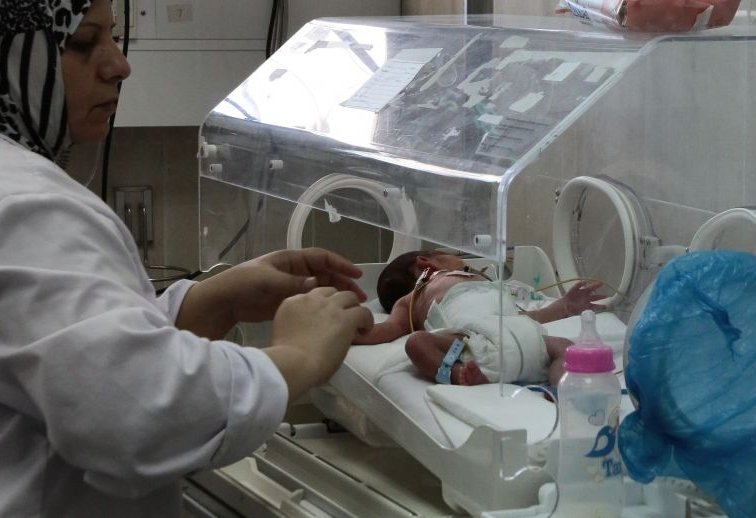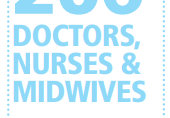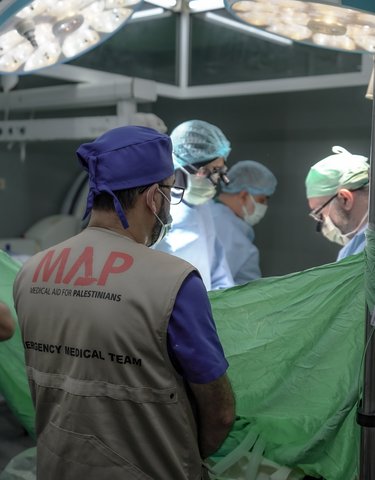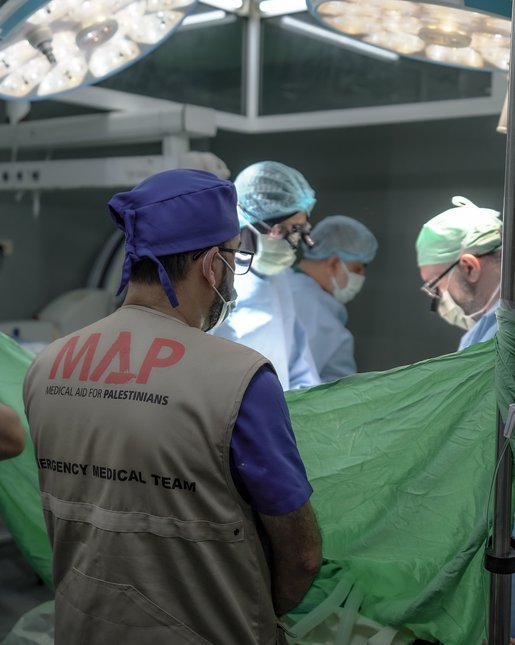Gaza's forgotten humanitarian emergency

People in Gaza have suffered a decade of declining living standards since Israel’s imposition of a blockade and closure in 2007. This year, the crisis has been exacerbated by severe electricity shortages as a result of reductions in the amount of electricity provided via Israel, and reduced fuel entering via Egypt. Daily blackouts of 18-20 hours have made every day acts like washing clothes, heating homes or refrigerating food a struggle for Gaza’s two million inhabitants. Severe electricity shortages have obstructed education, livelihoods and healthcare, and left water treatment and desalination plants only able to operate minimal services. At least two thirds of the shoreline is now dangerously polluted.
New-born babies at risk
Gaza’s humanitarian emergency is particularly dangerous for its youngest residents. In 2017, before the electricity crisis intensified, the UN found that approximately 287,000 children and babies were vulnerable as a result of the deterioration of Gaza’s health sector and restricted access to essential health and nutrition services. New-born babies are particularly under threat. 45% of child deaths under the age of five occur within the first 28 days of life – the neonatal period.
Dangerous overcrowding in neonatal intensive care units is threatening the lives of Gaza’s most vulnerable babies. Worsening maternal nutrition, heightened rates of premature and low-birth-weight babies have increased the number of new-borns requiring intensive care. Coupled with shortages of essential medicines and increasing obstacles to transfers to hospitals outside of Gaza for care, this means babies need to stay in intensive care incubators for longer periods of time. Medical teams at Al Shifa Hospital, Gaza’s largest hospital, have repeatedly had to place multiple babies in incubators meant for just one. While in the UK critically ill babies are given either 1:1 or 1:2 nurse-to-baby care, Al Shifa has in some instances only been able to provide 1:7 care. Overcrowding of this type makes adequate monitoring and infection control impossible.
Electricity outages due to faulty hospital backup generators, which currently provide power for most of the day, in one case resulted in nurses having to hand ventilate babies for 50 minutes to keep them alive while they waited for power to be restored.
Reducing morbidity and mortality for high-risk new borns

MAP also trained 95 doctors, nurses and midwives on how to safely transfer babies to and from specialist neonatal care, and 11 ophthalmologists, 23 paediatricians and nurses on the early detection and prevention of retinopathy of prematurity, a disease that occurs in premature babies which, if left untreated, can lead to blindness. As a result, at least 3,600 new-born babies in Gaza have benefitted from increased medical expertise and access to life-saving medicines.
Dr Allam: Head of Al Shifa Neonatal Intensive Care Unit said, “We are very thankful to MAP for their support and the provision of such important equipment, medications, and for raising the capacity of the neonatal team in retinopathy of prematurity, neonatal life support, and neonatal safe transfer.”
Ultimately, the safety of babies in Gaza cannot be guaranteed under prolonged blockade and humanitarian decline. Political action to address these issues is vital to save lives, and MAP campaigns for such action in the UK and internationally. Until this is realised, however, we will continue to work in partnership with Gaza’s inspirational medics to provide the best care possible in these most challenging circumstances.
Support our work
Our continuing work in Gaza depends on the support of people like you. If you would like to help us keep saving lives in Gaza, please consider making a donation today.
Take action
Resolving Gaza’s protracted humanitarian crisis requires diplomatic action. Governments, including the UK, must work to ensure that international humanitarian law is strictly adhered to in the oPt, including helping to end Israel’s 10-year closure of Gaza, which the International Committee of the Red Cross considers “collective punishment imposed in clear violation of Israel's obligations under international humanitarian law”.
Please help us call on the UK to raise Palestinians’ right to health at Israel’s upcoming Universal Periodic Review at the UN Human Rights Council in January.
Related content




